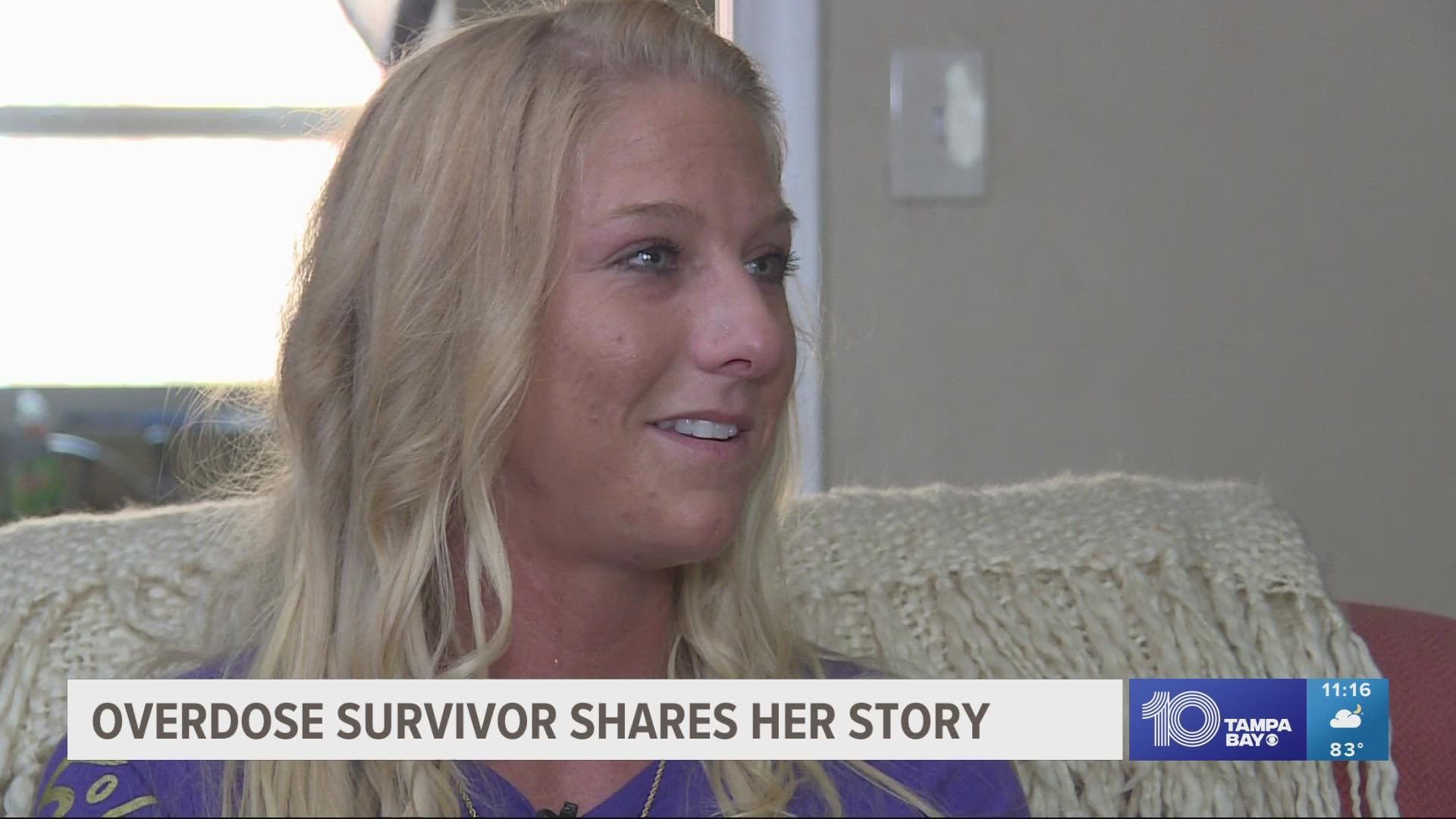ST. PETERSBURG, Fla. — According to LIVE Tampa Bay, a local non-profit fighting opioid addiction, an average of 30 people die from drug overdoses each week in the Tampa Bay area. Furthermore, it says an average of 34 people in the area are resuscitated from overdoses with Naloxone every single day.
Behind those jarring statistics, there are countless personal stories about addiction, including that of Emily Chomic.
Chomic started using drugs when she was just 13 years old as a way to cope with the untimely death of her sister. The years that followed were marred by arrests, stints in rehab and strained relationships with her family and friends.
"I could never figure out why I kept going back and it took me a long time to figure out it was me; I wasn’t feeling comfortable with myself," Chomic said. "I hated myself for the embarrassment that I put my family through and myself, I could never forgive myself for the past."
At 25, her addiction spiraled. She overdosed five times in two years.
"You would think that would scare you, you would think like, 'oh my God I just died, I need to get my life together, I have a problem.' But no, there's just something about that drug that you just pick it over anything."
Executive Director of LIVE Tampa Bay Jennifer Webb said Chomic's experience with overdoses is not uncommon.
"Substance use disorder is a disease. It's a chronic behavioral health disease like diabetes is a chronic health disease," Webb said. "You would no more refrain from giving a diabetic insulin than you should refrain from giving someone overdosing naloxone or medication to help them get into recovery."
As we remember those lost to overdoses, Webb said she hopes to reach those still struggling.
"Let's keep supporting people until they can get into recovery, because recovery is possible," she said. "We keep bringing people back and working to connect them to recovery and treatment so they can get their life back together and get into recovery and become a contributing, productive member of society. That’s absolutely possible."
Now three months clean, Chomic said she strives to be living proof that recovery is possible.
"I'm learning how to be strong within myself, which is very hard, but it's doable. I just can't believe I'm sitting here today. It's a blessing," she said.
If you're struggling, there are resources out there. Dial 211 to be connected to local resources.
Sept. 1 marks the beginning of National Recovery Month.

